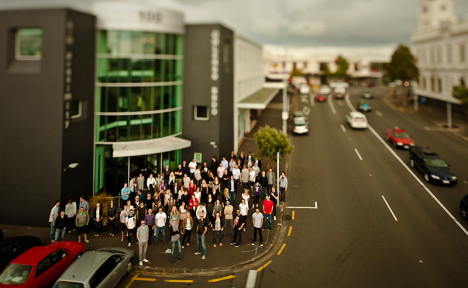Inside Colenso BBDO
New Zealand creative agency Colenso BBDO was this year’s Mumbrella Creative Agency of the Year and has added this award to a number of other international accolades it has received this year. In the first of a series of profiles of the 2013 Mumbrella Award winners, Nic Christensen talks to the team who run the agency about their formula and the pressure to maintain global success.
The offices of Colenso BBDO belie the recent global success of this New Zealand creative agency. Located on a hill, about 20 minutes walk from Auckland’s CBD, the agency with its 100 or so staff is not quite what you picture when you imagine the world’s most awarded advertising agency.
Even with a view of the city skyline, complete with Auckland’s Sky Tower, Colenso BBDO is no Madison Avenue agency. Instead it is located in a fairly standard office building on a suburban street that could be home to one of 100 other companies.



Very good agency, that one. Good people, too.
That’ll be New World…